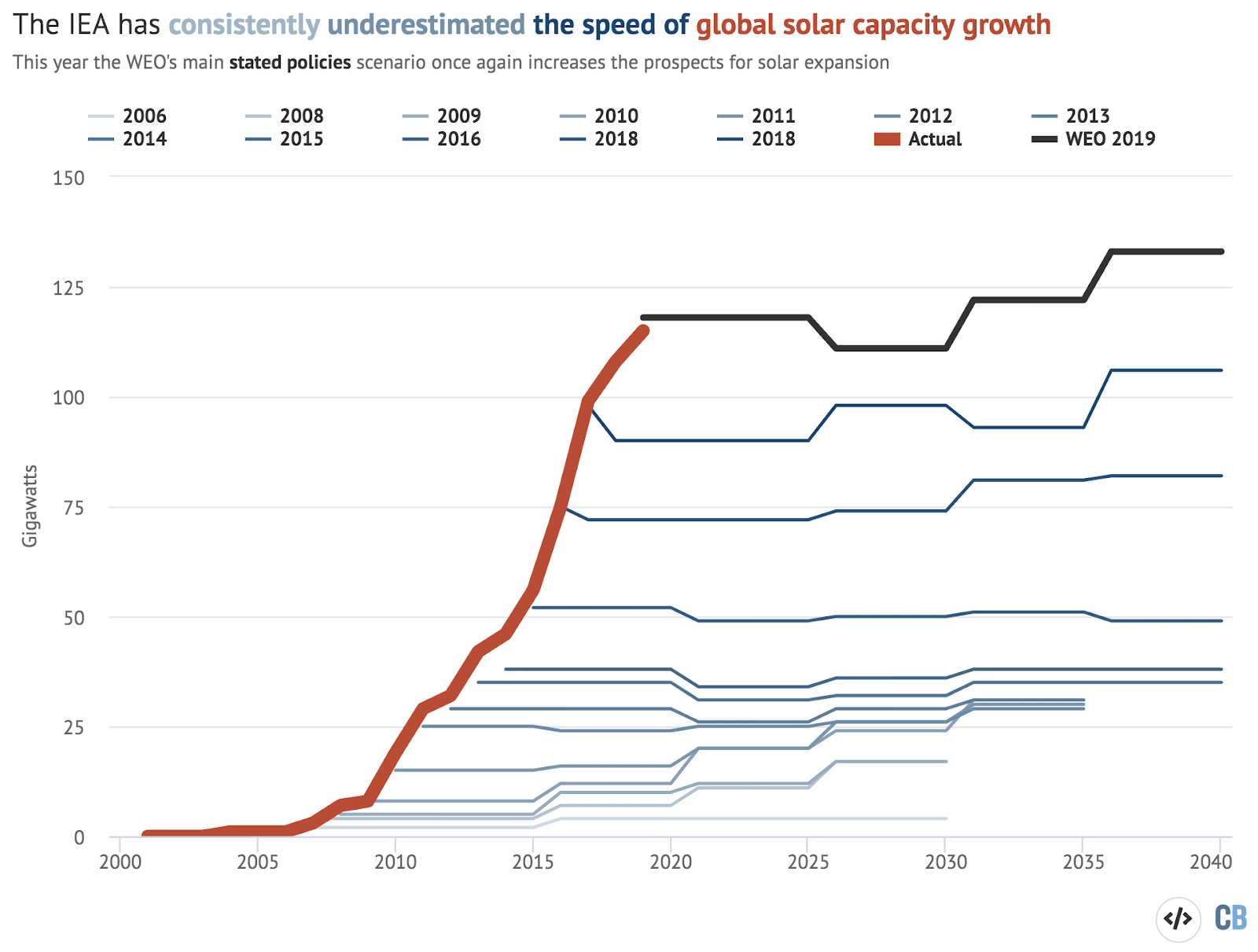Rationalist Gnosticism
post by tailcalled · 2024-10-10T09:06:34.149Z · LW · GW · 10 commentsContents
11 comments
Gnosticism was an old Christian sect which solved the problem of evil by asserting that the material world was created by an evil entity, and that only inner enlightment can reveal the path to the true, good and loving god. I think many rationalists have a worldview similar to this, perhaps most strongly illustrated by The Goddess Of Everything Else, which portrays brutal competition dynamics as the creator of the world's forms, which just barely/unreliably yields "good values" due to the deeper realization that cooperation is possible.

Things I think of as Gnostic:
- Deriving morality from game theory, e.g. studying iterated prisoner's dilemma, tit-for-tat, etc..
- Modelling latent variables without a material root cause analysis [? · GW].
- Studying what things "really are like" (often with reductionist methods), as distinct from their applications. Treating macroscopic objects as an abstract simplified representation of large numbers of microscopic objects, rather than vice versa.
- Self-reference and especially attempts to solve paradoxes of self-reference using math/logic.
- Paying more attention to Bayesian decision theory, economics or evolution/genetics than to social events, business or ecology. Starting with common/informative factors rather than powerful factors.
- Trying to eliminate errors or eliminate biases, especially if one doesn't know where those errors/biases come from, or has derived the source of the errors/biases from theories like evolutionary psychology.
I sometimes place religions on a spectrum with varying degrees of emphasis on the material world vs personal inner enlightenment:
Paganism <- Judaism - Islam - Protestantism - Atheism - Gnosticism -> Buddhism
That said, this is quite stereotyped, and each religion has more-Gnostic variants (e.g. Judaism has Kabbalah) and less-Gnostic variants (e.g. Protestantism has the prosperity gospel). I see Paganism, especially sun worship, as the opposite of Gnosticism. Notably, The Goddess Of Everything Else does not even mention the sun. While a big reason I bring up Gnosticism and Paganism is to highlight the flaws with Gnosticism, I don't think all movements towards Paganism are good; again the prosperity gospel is an example of something that is bad. One way to ensure that those movements are less bad is to make them more true, and the reason I emphasize the sun is because it seems to be the core factor generating the truth of Paganism.
My case for the sun would be: It is the creator of life. It is simple, singular and unchanging. It is unfathomably greater than you. You can feel its warmth everywhere you go, and only the sun will reveal the truth to your eyes[1]. All of life (plants, organizations, humans, ...) must keep its fruit present in order to persevere, whether it be in mere survival[2], in creation - or even in destruction: the victors of war have only won because they carried the sun's force.[3] The term "spirit" derives from latin "spirare" which means "breath", and of course it is the sun which powers the separation of the oxygen we use to breathe.

Or well, I am slightly committing the sin of idolatry by solely centering the sun. The night and the earth and the orbits and so on are of course also important. But I would say centering the sun is much less idolatrous than all other common positions, while still leaving a very concrete reference to talk about. You could say that the sun is just one of many stars, but the relevance of this is unclear since certain AI alignment failures will prevent anything from exiting the solar system, so the sun might turn out to be the only star that matters.
Do note: the sun is not simply good. It's simply a giant ball of hydrogen and helium. The sun is hot; it is the creator of life on Earth, but it also scorched Venus and Mercury. The sun might be net good, at least if you accept that life on Earth is net good, but everything is a mosaic of good and bad traits. Emphasis on mosaic rather than shades of grey; a major impulse that turns people Gnostic is the search for things that are purely good, but the bigger something is, the more traits it has, and the more likely some of them are bad. The sun can reveal the truth to your eyes, but this very same revelatory force can destroy your sight if you let it directly impact your eyes without diminishing it first. It's no use trying to flee from, destroy or change the sun, because it is too important to be approached; instead one needs to develop the vitality to channel the sun's power in better directions. Even our spirit started by killing most life on earth.
I expect Bayesian updating for embedded agents [LW · GW] to be fundamentally biased in favor of Gnosticism [LW · GW], though somewhat less so if I explicitly emphasize the need to think in terms of the sun.
- ^
Yeah yeah, lamps exist, but they are powered by electricity or fuel, whose energy ultimately derives from sunlight.
- ^
Workplaces and meetups tend to serve food, which contains solar energy. If they didn't, they would probably have to let people leave to get food. Nothing can persist for long without this.
- ^
Well, except for US vs Japan in WWII, but it might be no accident that nuclear bombs are a special taboo.
10 comments
Comments sorted by top scores.
comment by cousin_it · 2024-10-11T09:50:01.602Z · LW(p) · GW(p)
One big turn-off of Gnosticism for me is dividing people into three sorts, of which the most numerous (hylics) is the most inferior. So groups with gnosticism-type beliefs will often think of themselves as distinct and superior to regular people.
Replies from: tailcalled↑ comment by tailcalled · 2024-10-11T10:30:51.934Z · LW(p) · GW(p)
It seems to me that there's this sort of division whenever there's something. For instance, what pneumatic/psychic/hylic are to enlightenment, so farmer/gardening enthusiast/nonfarmer are to food. The question is just whether the judgements about the division match the actual value of the something. So for instance since food is good, wheat farmers are also good, and it is precisely their distinction from nonfarmers that make them good, so nonfarmers are generically inferior.
Now of course individual nonfarmers can be better than individual farmers, but that either requires the nonfarmer to have their own worthwhile characteristic (which then implies another division into three sorts of superior vs inferior), or the farmer to have some unrelated negative characteristic.
The main problem is that because Gnosticism sees material power as a distortion to inner enlightenment, rather than as the proper object that ought to guide one's enlightenment, Gnostics tend to try to retreat from powerful material factors, which leads to self-destructive tendencies (e.g. starvation). Thus the problem with the Gnostic division is that pneumatics are actually inferior, whereas Gnostics see them as superior.
(In uncivilized circumstances you could probably prove the pneumatics wrong by beating them up until they give up, but violence is often bad so civilized circumstances try to prevent it, and they typically don't bother leaving an exception for violence towards Gnostics, so one needs to stop them in some other way. My suspicion is that sun worship could work for proving them wrong, but since it is information-based, it really is a Gnostic approach to stopping Gnosticism, which is kind of paradoxical, but YMMV.)
Replies from: cousin_it↑ comment by cousin_it · 2024-10-11T13:51:08.950Z · LW(p) · GW(p)
I think most farmers would agree that there are many other jobs as useful as farming. But to a gnostic, the pneumatic/psychic/hylic classification is the most important fact about a person.
Replies from: tailcalled↑ comment by tailcalled · 2024-10-11T14:50:10.909Z · LW(p) · GW(p)
Because of long-tailedness:
- good classifications would tend to be ~the most important fact about a person,
- the most common types would be inferior to various rare types
However, I agree that pneumatic/psychic/hylic has too few categories (and has categories that focus on the wrong things) for it to be a good system to apply to the world in general.
That said, I'm not sure this is exactly a problem for rationalist Gnostics. Like, the thing that corresponds to "pneumatic" would probably be "rationality guru", someone like Eliezer Yudkowsky, E. T. Jaynes, or similar, the thing that corresponds to "psychic" would probably be an ordinary/aspiring rationalist, and the thing that corresponds to "hylic" would probably be a non-rationalist person.
But while many rationalists Gnostics see pneumatics as being much more important than hylics (due to pneumatics e.g. developing unfriendly AGI or solving AI safety), rationalist Gnostics are still basically able to deal with hylics when things concern material matters.
Replies from: cousin_it↑ comment by cousin_it · 2024-10-11T15:27:49.351Z · LW(p) · GW(p)
rationalist Gnostics are still basically able to deal with hylics
That sounds a bit like "dealing with muggles". I think this kind of thing is wrong in general, it's better to not have gurus and not have muggles.
Replies from: tailcalled↑ comment by tailcalled · 2024-10-11T15:37:20.097Z · LW(p) · GW(p)
I find your position a bit ambiguous. The main meanings I can see are:
- You wanna pretend that people who have nothing specially important going on actually do have something specially important going on.
- You wanna pretend that people who do have something specially important going on actually don't, at least to the point where they don't teach it.
- You wanna kill everyone/most people so there's nobody who is failing to be special or especially special.
- You do not believe that there is anything specially important, at least not unless everyone is equally involved with it.
All of these interpretations sound very strawmanny but I don't know what the non-strawmanny version that you are hinting at is.
Replies from: cousin_it↑ comment by cousin_it · 2024-10-11T17:59:35.729Z · LW(p) · GW(p)
I mean, in science people will use Newton's results and add their own. But they won't quote Newton's books at you on every topic under the sun, or consider you a muggle if you haven't read these books. He doesn't get the guru treatment that EY does.
Replies from: tailcalled↑ comment by tailcalled · 2024-10-11T19:20:13.807Z · LW(p) · GW(p)
Do you have some examples of areas he's commented on that have been taken too seriously and shouldn't have been? (Doesn't have to be links, just stuff you remember is fine.)
Replies from: cousin_it, cousin_it↑ comment by cousin_it · 2024-10-13T09:39:24.315Z · LW(p) · GW(p)
Maybe HPMOR? A lot of people treated it like "our guru has written a fiction book that teaches you how to think more correctly, let's get more people to read it". And maybe it's possible to write such a book, but to me the book was charming in the moment but fell off hard when rereading later.
Replies from: tailcalled↑ comment by tailcalled · 2024-10-13T15:29:04.239Z · LW(p) · GW(p)
It's been a long time since I read HPMOR, and I only read it once, so I might not be the best to comment on this. But, my impression is that a lot of the enthusiasm for it is endogenous, with HPMOR being a major factor leading people to rationalism, rather than its popularity being driven by people who were already into rationalism? So doesn't whether this is problematic again just boil down to the quality of Gnosticism? Like it doesn't seem to be intrinsically wrong to go "I find this book really insightful, more people should read it" as long as the book actually is really good.